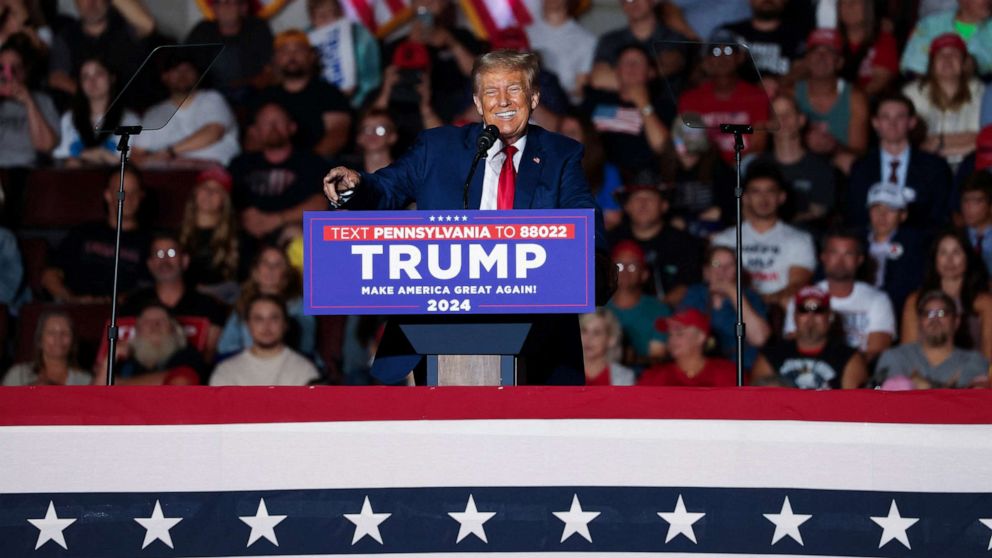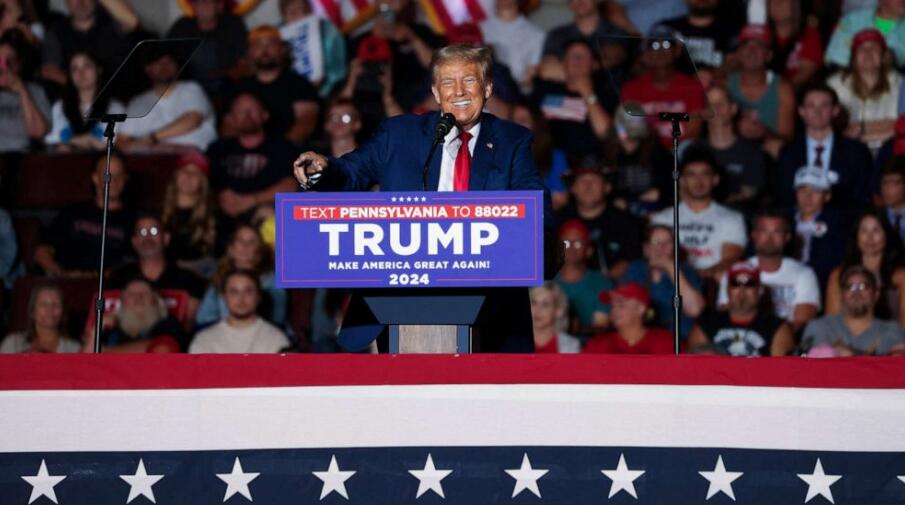Proposed protective order would infringe on Trump’s right to free speech, his lawyers say
Former President Donald Trump’s legal team says that a protective order proposed by special counsel Jack Smith would infringe on Trump’s right to free speech.
Trump’s attorneys made the argument in their response Monday to the special counsel’s motion for a protective order over the discovery evidence in the case against Trump for allegedly seeking to overturn the 2020 election.
Trump has pleaded not guilty to charges of undertaking a “criminal scheme” to overturn the results of the 2020 election by enlisting a slate of so-called “fake electors” targeting several states; using the Justice Department to conduct “sham election crime investigations”; and trying to enlist the vice president to “alter the election results” — all in an effort to subvert democracy and remain in power.
The former president has denied all wrongdoing and has dismissed the probe as politically motivated.
Monday’s filing argues for narrower limits on the protective order, which Trump’s attorneys say would protect sensitive materials while ensuring Trump’s right to free speech.
“In a trial about First Amendment rights, the government seeks to restrict First Amendment rights,” Trump’s attorneys wrote in their filing. “Worse, it does so against its administration’s primary political opponent, during an election season in which the administration, prominent party members, and media allies have campaigned on the indictment and proliferated its false allegations.”
Smith’s indictment against Trump, unsealed last week, disputes that he is being charged for exercising his First Amendment rights, instead alleging that he perpetrated three criminal conspiracies as “unlawful means of discounting legitimate votes and subverting the election results.”

Smith asked the judge for the protective order on Friday, referencing a social media post Trump made Friday afternoon in which he said, “IF YOU GO AFTER ME, I’M COMING AFTER YOU!”
In a statement issued after Smith’s filing on Friday, the Trump campaign said the post was aimed at political interest groups.
“The Truth post cited is the definition of political speech,” a Trump spokesperson said in a statement.
The proposed protective order submitted by Smith does not seek to bar Trump from commenting on the case in its entirety, but would restrict Trump and his attorneys from disclosing evidence such as materials returned from grand jury subpoenas and testimony from witnesses and other exhibits shown to the grand jury. It does not limit Trump from discussing materials that were already available to the public separate from the government’s investigation.
Smith’s attorneys have said the proposed order is largely modeled after similar protective orders issued in other cases.
But in their filing on Monday, Trump’s attorneys accuse Smith’s team of asking Judge Tanya Chutkan to “assume the role of censor and impose content-based regulations on President Trump’s political speech that would forbid him from publicly discussing or disclosing all non-public documents produced by the government, including both purportedly sensitive materials, and non-sensitive, potentially exculpatory documents.”
Trump “does not contest the government’s claimed interest in restricting some of the documents it must produce” such as grand jury related materials — but “the need to protect that information does not require a blanket gag order over all documents produced by the government,” the filing says.
In a quick response filed Monday night, Smith accused Trump’s legal team of proposing an order “designed to allow him to try this case in the media rather than in the courtroom.”
“To facilitate the efficient production of discovery to the defense, the Government proposed a reasonable protective order consistent with current practice in this District,” the special counsel’s team wrote. “To safeguard witness privacy and the integrity of these proceedings, the Court should enter the Government’s proposed protective order.”
In contrast, the special counsel argued, Trump’s proposed protective order “would lead to the public dissemination of discovery material.”
Judge Chutkan said in an order on Saturday that she would “determine whether to schedule a hearing to discuss the proposed protective order after reviewing Defendant’s response.”
